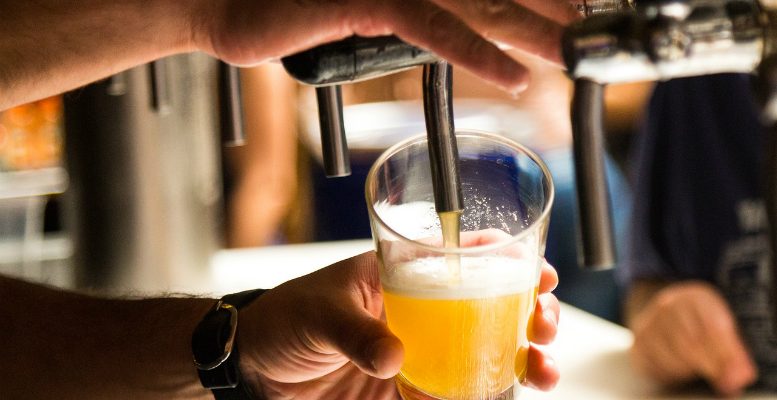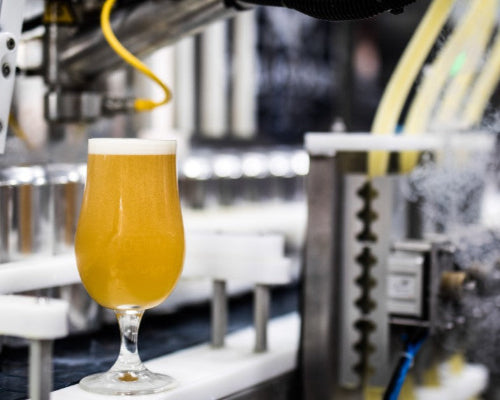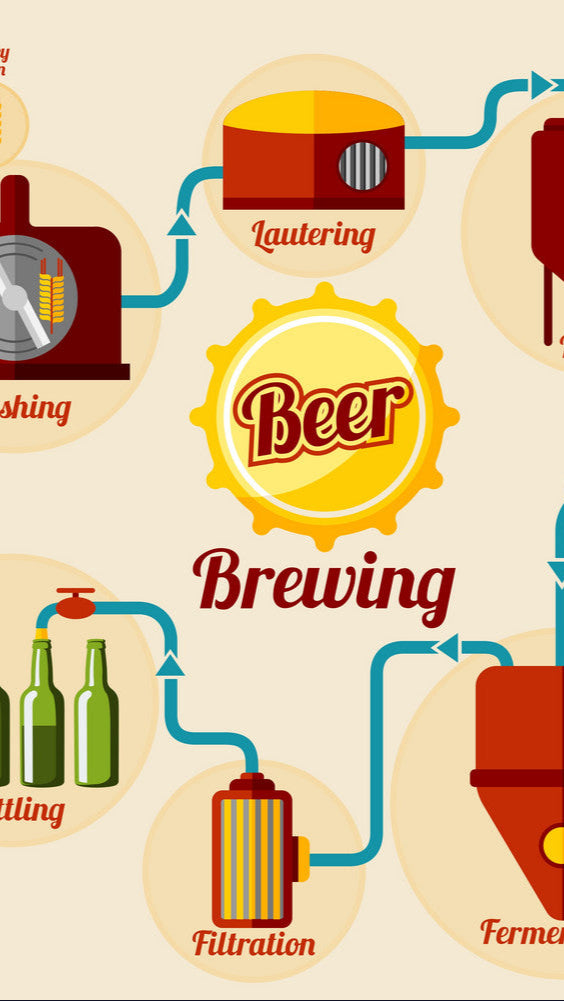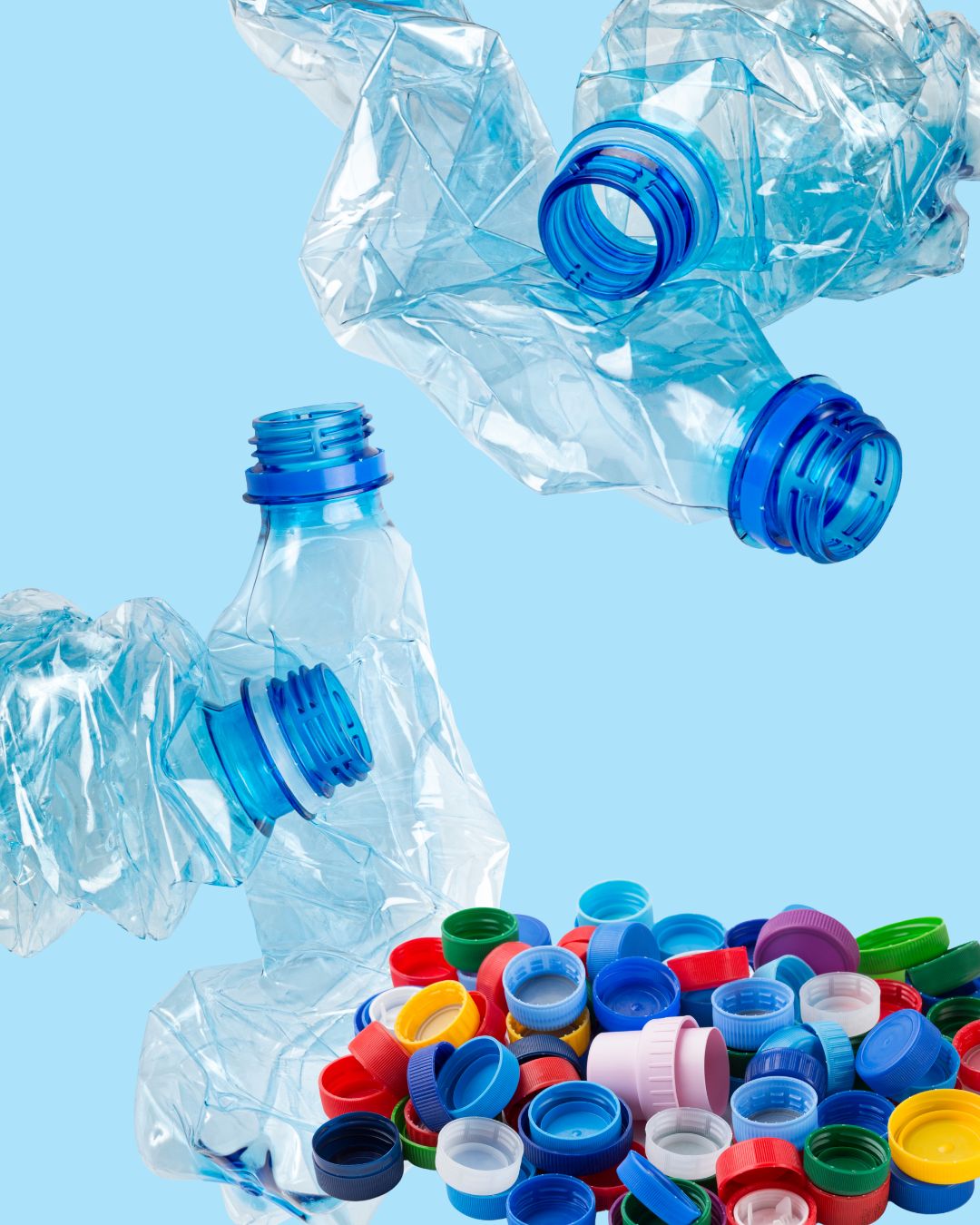Pubs and Breweries

The Importance of Water Filtration in Breweries and Bars
Water is the cornerstone of life, but in pubs and breweries, it’s more than a necessity—it’s an ingredient, a cleanser, and a crucial component of production. For establishments aiming to deliver high-quality beverages and food, water treatment is not just an operational task but a vital investment in quality, efficiency, and customer satisfaction. This article explores the significance of water treatment in pubs and breweries, focusing on its impact on taste, production processes, and operational sustainability.The Importance of Water Filtration in Breweries and Bars
Water is the foundation of every pint of beer and the cornerstone of the beverages served in bars. For breweries and bars, ensuring the quality of water is not just a matter of taste; it is a matter of efficiency, customer satisfaction, and cost-effectiveness. Here's why water filtration is a vital component of successful operations in breweries and bars.

Enhancing Beer Quality with Filtration
1. Consistency in Flavor
In beer brewing, consistency is key. Water quality can vary depending on the source, but filtration ensures that impurities like chlorine, sediment, and unwanted minerals are removed. This allows breweries to create a consistent flavor profile, regardless of geographic location.
2. Balanced Mineral Content
Certain minerals, like calcium and magnesium, are essential for brewing. However, excess or unwanted minerals can disrupt the brewing process or lead to undesirable flavors. Advanced water filtration systems, such as commercial water filtration units and water softeners, allow brewers to fine-tune water chemistry for specific beer styles, ensuring optimal pH levels and enzyme activity during mashing.
3. Preventing Off-Flavors
Unfiltered water can introduce contaminants such as chloramines, which impart a medicinal or chemical taste to beer. Using water filters and softeners eliminates these compounds, preserving the beer’s intended flavor and aroma.

Water Treatment and Beer Production
Water is not just an ingredient in beer; it’s a critical factor in every stage of the brewing process. Here’s how water filtration impacts each step:
1. Mashing
During mashing, grains are mixed with water to extract fermentable sugars. The mineral composition of water affects enzyme activity, which is crucial for breaking down starches into sugars. Using water softeners and commercial water filtration systems helps achieve the right balance of minerals, ensuring efficient mashing and preventing harsh flavors.
2. Boiling
In the boiling stage, hops are added to the wort to develop bitterness and aroma. Impurities like chlorine in unfiltered water can react with hops, producing off-flavors. Water filters remove these contaminants, maintaining the purity of the wort.
3. Fermentation
Fermentation is a delicate process where yeast converts sugars into alcohol and carbon dioxide. Contaminants in water can disrupt yeast activity, leading to inconsistent results. High-quality water filtration ensures a clean and stable environment for fermentation.
4. Packaging
Even during packaging, water quality matters. For example, breweries that rinse bottles or cans with unfiltered water risk introducing unwanted particles. Commercial water filtration systems ensure cleanliness, safeguarding the final product.

Cost Savings for Bars and Breweries
1. Protecting Equipment
Bars and breweries rely on high-performance equipment like draft beer systems, coffee machines, and ice makers. Impurities in water, such as sediment and limescale, can damage equipment over time. Water filtration prevents buildup, reducing maintenance costs and extending equipment lifespan.
2. Lower Operating Costs
Filtered water reduces energy consumption by keeping equipment running efficiently. For example, descaled water heaters and boilers use less energy to maintain temperature, leading to significant savings over time.
3. Reducing Waste
For breweries, consistent water quality reduces batch inconsistencies, minimizing waste and maximizing profitability. Bars benefit from serving beverages with the best possible taste, encouraging repeat customers.

Customer Satisfaction Through Purity
1. Improved Beverage Taste
From beer to coffee and cocktails, the quality of water directly impacts the flavour of beverages. Customers can taste the difference that filtered water makes, leading to a better drinking experience.
2. Crystal-Clear Ice
Bars that serve drinks on the rocks know the importance of presentation. Crystal-clear ice enhances the overall aesthetic of drinks, creating a visually appealing experience that customers appreciate. Impurities in unfiltered water, such as minerals and sediments, can lead to cloudy or discolored ice. High-quality water filtration removes these impurities, producing ice that not only looks pristine but also melts slower, preserving the flavor integrity of cocktails and other beverages. The use of commercial water filtration systems ensures that every cube of ice is free of unpleasant tastes or odors, leaving customers with a refreshing, high-quality drink.
3. Health and Safety
Filtered water eliminates harmful bacteria, heavy metals, and other contaminants, ensuring beverages are safe to consume. This builds customer trust and loyalty, critical for long-term success.

Environmental Benefits of Filtration
Filtered water systems reduce reliance on bottled water, cutting down on plastic waste. Many modern filtration systems are also energy-efficient, making them a sustainable choice for environmentally conscious businesses.
Choosing the Right Water Filtration System
1. Reverse Osmosis (RO)
RO systems are ideal for breweries, as they remove up to 99% of impurities, providing a blank slate for custom water chemistry. They are a key component of many commercial water filtration setups.
2. Activated Carbon Filters
These filters are perfect for bars, as they effectively remove chlorine, chloramines, and organic compounds that affect taste and odour.
3. Water Softeners
Water softeners are essential for areas with hard water. They prevent limescale buildup and improve the performance of brewing equipment, ensuring smoother operations.
4. UV Filtration
For establishments concerned about bacteria and viruses, UV systems provide an additional layer of protection without altering water composition.
Our Cases
-

Joules Brewery
Check out how we helped themJoules Brewery needed to upgrade its water filtration system to maintain the quality and consistency of its brewing process. Their existing setup was struggling to meet production demands, requiring a more efficient and reliable solution.

